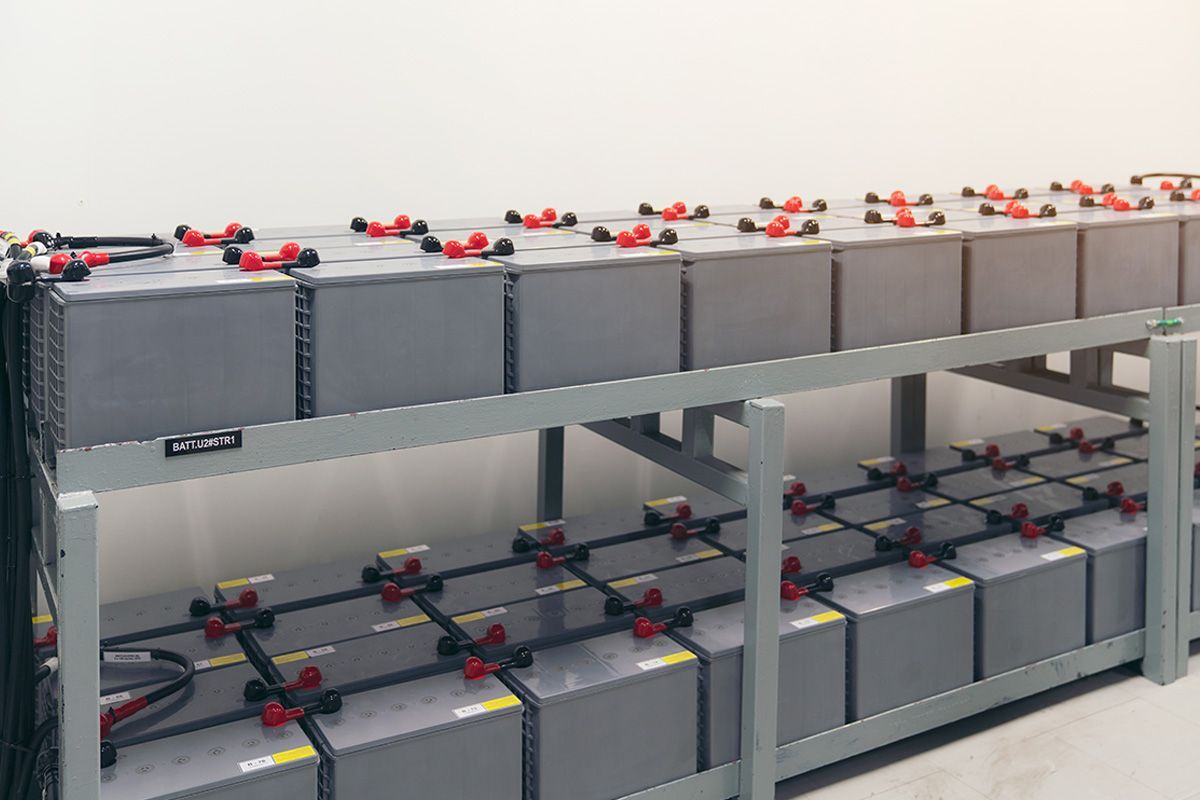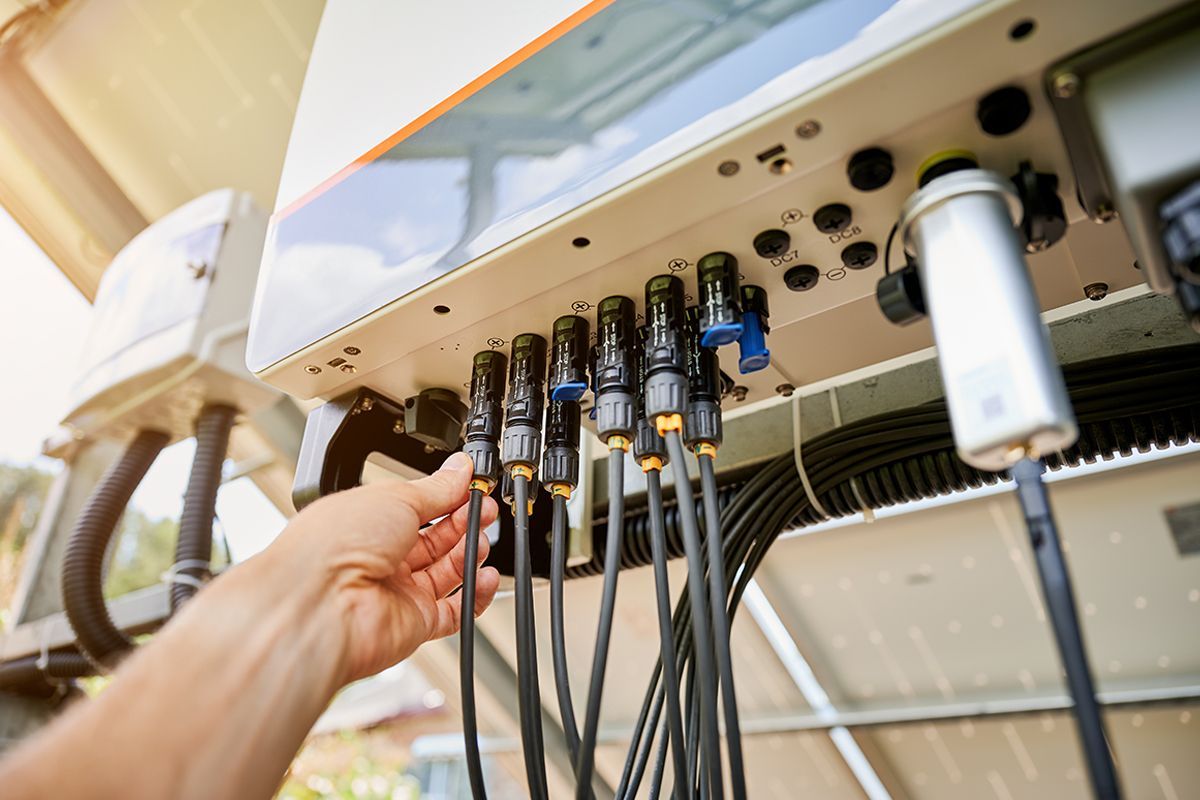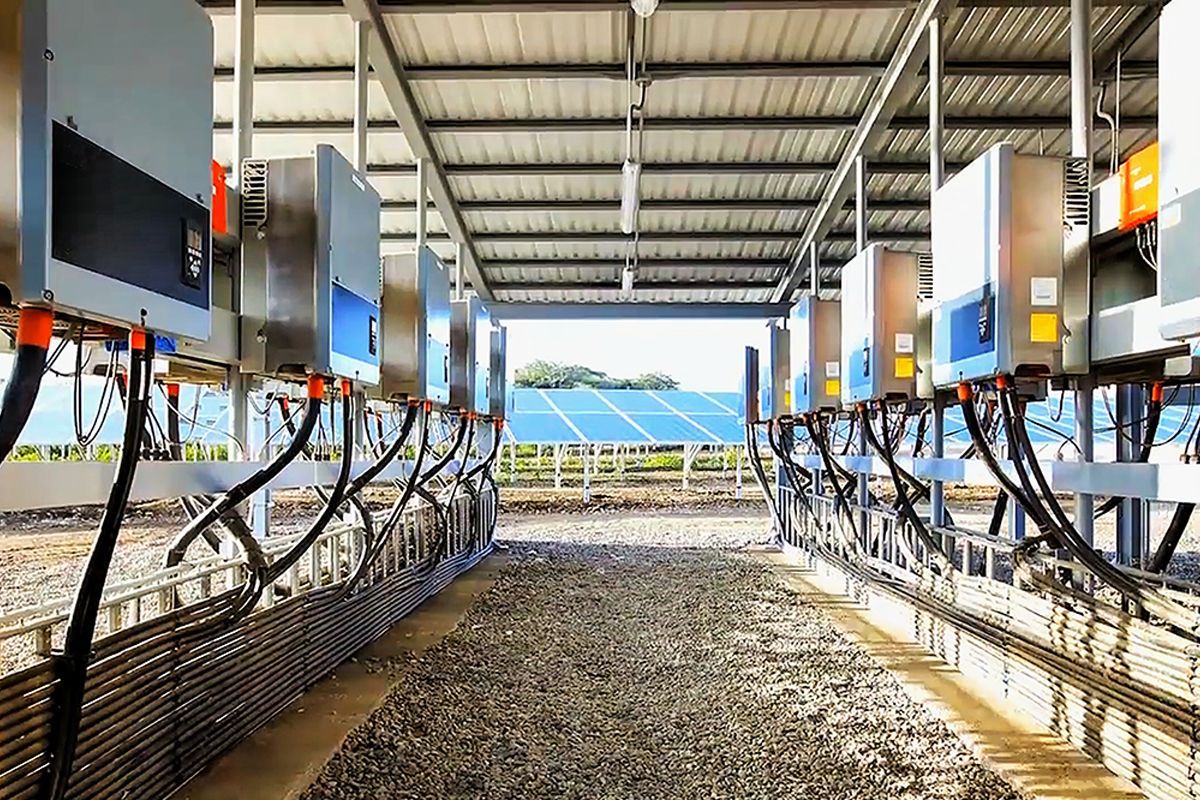Are Commercial Solar Batteries Worth It?
Solar energy has gained significant traction in recent years as a clean and sustainable power source. As businesses and industries continue to seek ways to reduce their carbon footprint and lower electricity costs, commercial solar installations have become increasingly popular.
However, one question that often arises is whether commercial solar batteries are worth the investment. In this comprehensive guide, we will explore the benefits, cost factors, and considerations of commercial solar batteries to help you make an informed decision for your business.
Benefits of Commercial Solar Batteries
Energy Independence and Grid Resilience
One of the primary advantages of commercial solar batteries is the ability to achieve energy independence and enhance grid resilience. With a solar battery storage system, businesses can store excess energy generated by their solar panels during the day and use it during the night or when the sun is not shining. This reduces reliance on the grid and ensures a continuous power supply, even during grid outages or peak demand periods.
By integrating commercial solar batteries into their energy infrastructure, businesses can protect critical operations and avoid costly downtime. In industries where uninterrupted power supply is vital, such as healthcare, data centres, and manufacturing, solar batteries provide a reliable backup solution to maintain operations during power outages.
Cost Savings and Financial Benefits
Commercial solar batteries offer significant cost savings and financial benefits. By storing excess solar energy, businesses can offset peak demand charges, which can account for a substantial portion of their electricity costs. During times of high electricity demand, such as hot summer afternoons, businesses can rely on stored energy rather than drawing electricity from the grid, reducing demand charges and lowering overall energy expenses.
Furthermore, commercial solar batteries enable businesses to participate in demand response programs. These programs incentivize energy users to reduce their electricity consumption during periods of high demand, helping to stabilise the grid and avoid blackouts. By discharging stored energy during peak demand periods, businesses can earn financial incentives from utility companies.
Environmental Sustainability
Investing in commercial solar batteries aligns with the growing focus on environmental sustainability. By reducing reliance on fossil fuel-generated electricity from the grid, businesses can significantly reduce their carbon footprint and contribute to mitigating climate change. Solar energy is clean and renewable, producing zero greenhouse gas emissions during operation.
Implementing commercial solar batteries also demonstrates a commitment to corporate social responsibility and sustainability goals. Many consumers and stakeholders are increasingly conscious of a company's environmental impact and prefer to support businesses that prioritize clean energy solutions.
Factors Affecting the Cost of Commercial Solar Batteries
Several factors influence the cost of commercial solar batteries. Understanding these cost factors is crucial for businesses considering the installation of a solar battery storage system.
Battery Capacity and Power Output
The capacity and power output of the solar battery system directly impact its cost. Battery capacity is measured in kilowatt-hours (kWh) and represents the amount of energy the battery can store. Higher capacity batteries can store more energy but come at a higher cost. Similarly, batteries with greater power output can deliver more electricity during peak demand periods but may be more expensive.
Businesses should assess their energy consumption patterns and determine the appropriate battery capacity and power output based on their specific needs. Working with a reputable solar installer can help businesses optimise their system size and ensure it meets their energy requirements.
Battery Chemistry and Technology
Commercial solar batteries are available in various chemistries, each with its advantages and cost considerations. Lithium-ion batteries, such as those used in electric vehicles, are the most common choice for commercial applications due to their high energy density, long lifespan, and fast charging capabilities. However, they tend to be more expensive upfront compared to other battery chemistries like lead-acid.
Additionally, advancements in battery technology, such as the integration of smart software and advanced energy management systems, can impact the cost. These technologies optimise battery performance, improve efficiency, and enhance overall system reliability, but they may come at a higher price.
Installation and Integration Costs
The installation and integration of commercial solar batteries involve additional costs beyond the battery itself. Businesses should consider expenses such as equipment installation, electrical wiring, permitting, and system integration with existing solar panels and electrical infrastructure. These costs vary depending on the complexity of the installation and the specific requirements of each business.
Working with an experienced solar installer is crucial to ensure a seamless installation process and minimise any potential complications or delays. A professional installer can provide accurate cost estimates and guide businesses through the necessary steps to integrate a solar battery storage system effectively.
Considerations for Commercial Solar Battery Investments
While the benefits of commercial solar batteries are significant, several factors should be considered before making an investment.
Energy Consumption Patterns and Load Profiles
Understanding your business's energy consumption patterns and load profiles is essential when evaluating the viability of a solar battery storage system. Analysing historical energy usage data helps identify peak demand periods and determine the optimal battery capacity required to offset demand charges effectively.
Businesses with stable and predictable energy consumption may find it easier to size and optimise their solar battery system. However, those with highly variable energy demands or short-duration peak demand periods may need to carefully analyse the cost-effectiveness of a solar battery investment.
Return on Investment (ROI) Analysis
Performing a comprehensive ROI analysis is crucial to assess the financial viability of a commercial solar battery investment. This analysis considers factors such as upfront costs, ongoing maintenance expenses, potential savings from demand charge reduction, participation in demand response programs, and available financial incentives or tax credits.
Businesses should compare the projected lifetime savings and financial benefits of a solar battery system against the initial investment and ongoing operational costs. This analysis provides a clear understanding of the payback period and overall return on investment, helping businesses make informed decisions.
Battery Lifespan and Maintenance
The lifespan and maintenance requirements of commercial solar batteries should be carefully evaluated. While lithium-ion batteries typically have longer lifespans compared to other battery chemistries, they still degrade over time and require periodic maintenance.
Businesses should consider the warranty and expected lifespan of the chosen battery technology, as well as any recommended maintenance procedures. Regular maintenance, such as capacity testing, firmware updates, and temperature monitoring, ensures optimal battery performance and maximises its lifespan.
Conclusion
Commercial solar batteries offer numerous benefits, including enhanced energy independence, cost savings, and environmental sustainability. By storing excess solar energy, businesses can reduce reliance on the grid, offset demand charges, and participate in demand response programs. However, several factors, including battery capacity, chemistry, installation costs, and energy consumption patterns, should be considered before making an investment.
Performing a thorough ROI analysis and understanding the maintenance requirements and lifespan of the chosen battery technology are crucial steps in the decision-making process. By carefully evaluating these factors, businesses can determine whether commercial solar batteries are worth the investment and take advantage of the numerous benefits they offer in terms of energy resilience, financial savings, and sustainability.
Investing in commercial solar batteries is a significant decision that can have long-lasting implications for your business. It is essential to work with experienced solar professionals who can provide expert guidance, perform accurate cost analyses, and ensure seamless installation and integration. With the right considerations and professional support, commercial solar batteries can be a worthwhile investment that pays dividends in the long run.










